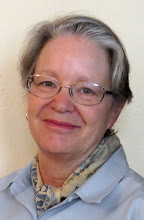Ministers and Ministry
In several places lately, both UU and Interfaith, home and away, I've been noticing that the word "minister" is undergoing change in our society. Specifically, more people are beginning to call themselves ministers without any or much schooling, mentoring, certification, or commissioning by a religious body. You can get ordained to the Universal life church with no qualifications over the internet. There are several "Interfaith Seminaries" which, for a variety of payments and coursework, ranging from a few weekends to a few three week courses, "qualify" a person to be ordained to the "Interfaith Ministry."
When an (excuse me) bona fide, ordained, educated and certified minister like myself grits her teeth over this new trend, or shows in any way that she doesn't consider these persons to be qualified colleagues, the answer is some version of "I have a ministry, just like you do, and that makes me a minister."
So this puts me in mind of a story I heard a while back. There was woman who had a gift for nursing, which she discovered in nursing her father and then a neighbor through their last months of life. She loved the role, and she was good at it. She observed how the various medical professionals she came in contact with worked and learned a great deal. She felt truly called and gifted in nursing. So she applied for a job as a nurse in a hospital. And because she had not been truthful in her application and the hospital had not been careful in their hiring practices and because there is always and everywhere a need for nurses, she got pretty close to getting a job.
But when the whole tale was told, the verdict was harsh. Gift and experience in nursing two dying persons aside, she was not "a nurse," and she could have done terrible harm if she had been hired to be one.
Ministers don't calculate drug dosages, but they, too, can do harm, both to individual souls and to religious institutions, when they use the title and authority of "minister" in spite of not having the requisite training or having gone through good certification processes. We "real" ministers actually learned quite a bit in our three years of seminary, summer of hospital chaplaincy, and 9 months of internship. We learned even more reading the stack of books and preparing ourselves for the certification process which is called, in the UU ministry "Fellowshipping". And some went through all that and were in the end, told that we didn't make the cut.
It's my understanding that it is actually against the law to call yourself a doctor or a nurse or a chiropractor or a lawyer if you are not in fact, qualified and certified to be one. Tenderness over separation of church and state keeps the law from defining what a minister is. But social pressure can be applied to persons who are calling themselves ministers (as opposed to working in ministries) If this trend keeps up, the "real" ministers are going to have to start distinguishing their training with the dreary practice of listing degrees and certifications after their names. And that will be a pity, don't you think?
Christine Robinson, M.div, IFUUA (in fellowship with the Unitarian Universalist Association)



<< Home